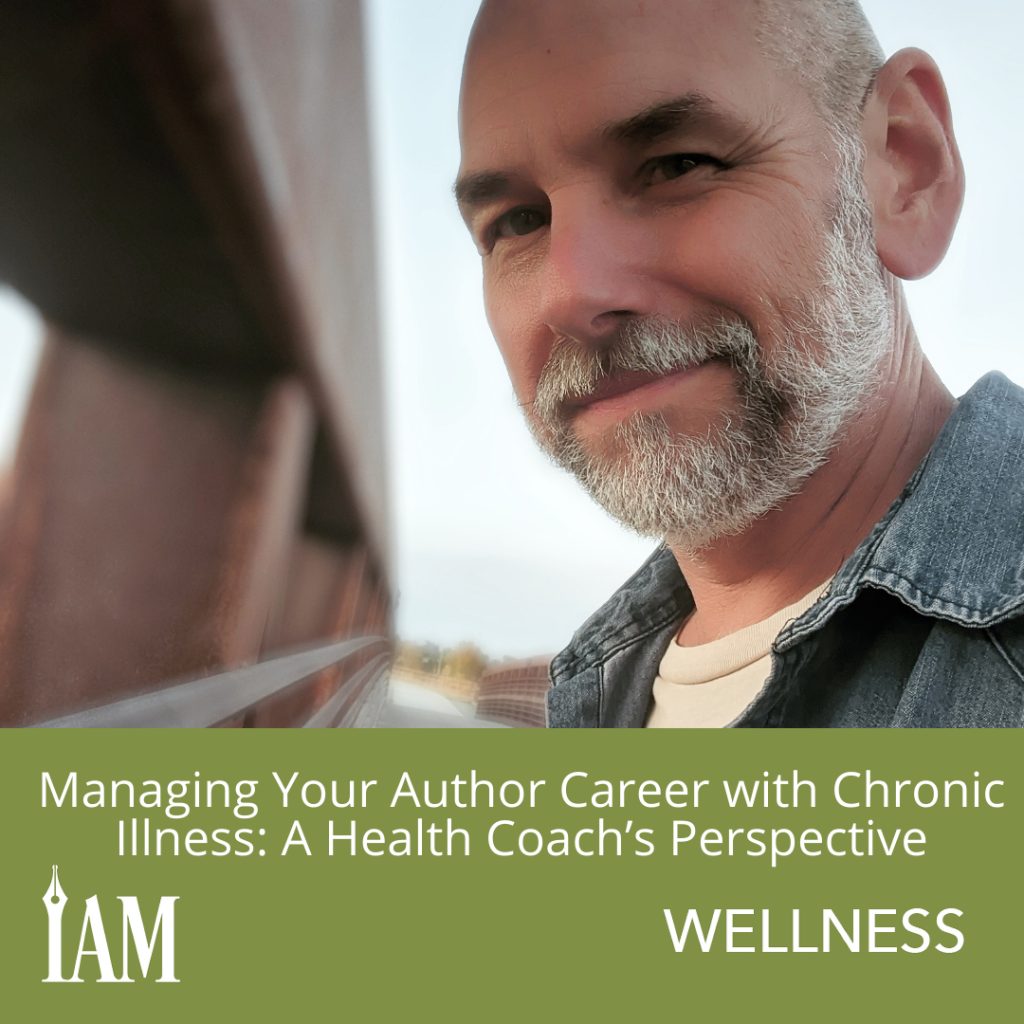If you’re healthy and have never had a chronic illness, you’re in a slim majority. According to the National Library of Medicine (https://www.ncbi.nlm.nih.gov), 45 percent of all Americans suffer from at least one chronic illness, and that doesn’t include those with long COVID. If you don’t suffer from a chronic illness, such as cancer, heart disease, or arthritis, chances are high that you may at some point in your life.
Roland Denzel sees the impact of chronic illness on writers every day. As a health coach and writer, he frequently advises those who want to live their best lives despite chronic illness. And although he does not suffer from a chronic illness himself, he works regularly with people who do.
For authors dealing with chronic illness, Denzel recommends thinking about their health as a funnel. You can only put so many things through a funnel at a time. Eventually, it will overflow. “There are things we can control, and there are things we can’t,” he says. “We don’t know when a flare is going to come up.”
The trick? Reduce the stressors within your control. Even things that are seemingly unrelated can still cause your funnel to overflow, such as poor sleep, overwork, or even relationship problems. “To our nervous system, all stress is virtually the same,” he says. “It all has a big effect on us, whether it is directly related to our chronic illness or not.”
Denzel has another unlikely tip for managing chronic illness: focusing on happiness. Previously obese and unhealthy, he, like many others, attempted to get his health back on track, but to no avail. “I had been tying my weight loss to my happiness, assuming that once I lost the weight, I would be happy.”
That tie, it turned out, was the problem. When he focused exclusively on his happiness by faking it until it became a habit, his health improved: “I found a way to be happy, and I found a way to be healthy.” There is a link between happiness and chronic illness. According to a study by the Healthy Aging and Physical Rehabilitation Research and Training Center, or the RRTC (https://agerrtc.washington.edu), in which researchers surveyed over four hundred people with chronic illnesses, happier patients reported lower pain levels. Setting personal goals, engaging in spiritual activities, nurturing relationships, and expressing gratitude can be additional ways to find happiness, according to the RRTC.
“Find happiness” is easy advice to give but not so easy to do, especially when chronic illnesses can cause so much pain, but for Denzel, finding it is essential to better outcomes. “Our responsibility to the people around us is to not drag them down,” Denzel says. “You have a responsibility to others to be happy for their sake, if not your own.”

